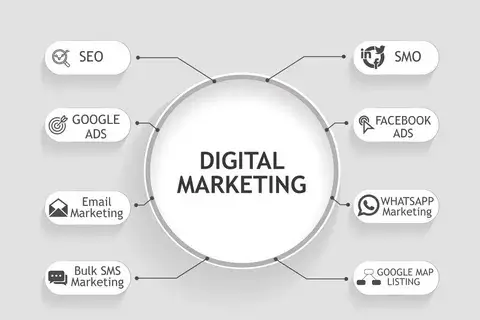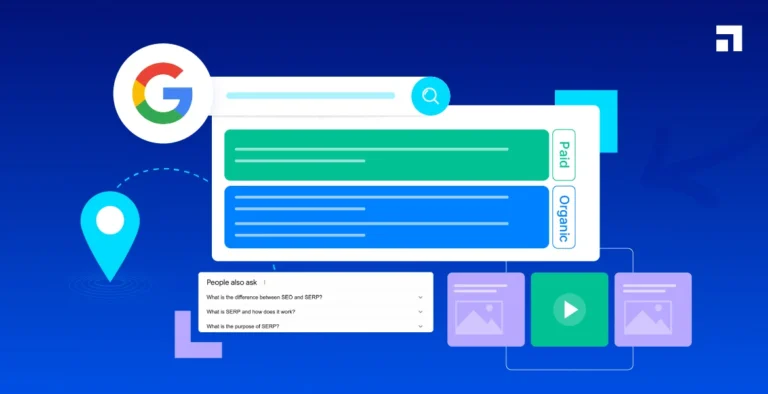Europe has declared Google Analytics 4 to be legally permissible after the European Commission adopted the EU-U.S. Data Privacy Framework.
This noteworthy update arrives amidst the Swedish Authority for Privacy Protection’s (IMY) concerns about surveillance risks linked to GA4.
The legality of GA4 in Europe and the IMY’s cautionary statement form integral components of a broader global story encompassing data privacy, regulations for protection, and the transfer of data across the Atlantic.

Overview of GA4 and Its Significance in Data Analytics
GA4, the latest version of Google Analytics, is a data analytics tool used for measuring website and mobile app performance. It brings about several changes and improvements, with a key focus on data governance and privacy. These enhancements aim to provide users with more control over the usage and sharing of their data.
Currently available in Europe, GA4 is set to be globally released in the near future. This release is noteworthy because it marks the first time a prominent data analytics tool falls under the purview of data privacy regulations. The General Data Protection Regulation (GDPR) of the European Union, known for its comprehensive data privacy framework, will now apply to GA4.
As a result, GA4 users must be mindful of their obligations under GDPR and take necessary measures to ensure compliance with the regulation when collecting and processing data. Furthermore, the storage and management of GA4 data will need to adhere to GDPR standards.
The introduction of GA4 signifies a significant advancement in the field of data analytics, profoundly influencing how businesses and organizations gather and utilize data.
EU-U.S. Data Privacy Framework
The EU-U.S. Data Privacy Framework has been adopted, indicating that the United States ensures an equal level of protection for personal data transferred from the EU as within the EU itself.
This choice enables EU to U.S. companies involved in the Framework to transmit data securely, eliminating the requirement for supplementary data protection measures.
The Framework incorporates strict measures that address concerns previously raised by the European Court of Justice. These measures limit the access of U.S. intelligence agencies to EU data, confining it to what is necessary and proportionate. Additionally, a Data Protection Review Court (DPRC) is established, granting EU citizens access to this court.
Improved Protections Beyond Previous Measures
The latest Framework presents substantial advancements in comparison to the prior Privacy Shield mechanism. For example, in cases where the DPRC establishes that data collection breaches the newly implemented safeguards, it possesses the authority to mandate the removal of such data.
American companies that import data from the European Union are obligated to abide by requirements that supplement the newly established safeguards, particularly in relation to government access to data.

Google Analytics Cautioned by Swedish Privacy Watchdog
As the EU-U.S. Data Privacy Framework is announced, the IMY has expressed concerns about surveillance risks posed by the U.S. government for companies using GA4.
After investigating four Swedish companies, the authority found that they had violated the consent and data transfer requirements of the GDPR. As a result, penalties were imposed, and they were ordered to discontinue the use of Google Analytics.
In response to the IMY’s decision, Google emphasized that Google Analytics does not track or identify specific individuals across the internet. The company stated that website publishers are responsible for ensuring compliance and ethical data usage, while Google provides safeguards, controls, and resources.
Google highlighted in response to the decision by IMY that Google Analytics does not trace or monitor individual people’s activities on the internet. The company emphasized that it is the responsibility of website publishers to adhere to data compliance and ethical usage, while Google offers protective measures, regulations, and support.
Compliance Protocol Framework for U.S. Businesses
U.S. companies have the option to participate in the Framework by pledging their adherence to a designated set of privacy responsibilities.
These responsibilities encompass actions such as the removal of personal data once its original purpose has been fulfilled, as well as safeguarding data when it is shared with external entities.
If U.S. companies mishandle the data of European Union (E.U.) citizens, various means of recourse will be available. These include accessible and impartial mechanisms for resolving disputes free of charge, as well as an arbitration panel.
Protecting Access to Transferred Data
The protection of data access by U.S. public authorities is ensured through various safeguards within the legal framework. The extent of data access is limited to what is deemed necessary and proportionate for the purpose of national security.
For European Union (E.U.) citizens, there will be an available independent and unbiased mechanism to address concerns regarding the collection and utilization of their data by U.S. intelligence agencies, including the recently established DPRC. This court will conduct an impartial investigation and provide resolutions for complaints.
These safeguards will facilitate broader transatlantic data flows as they are applicable when data is transferred using alternative methods such as standard contractual clauses and binding corporate rules.

Implementation of Privacy Features
Following the adoption of the EU-U.S. Data Privacy Framework by the European Commission, GA4 is now permitted in Europe. The European Commission has recently introduced the “Privacy Shield 2.0” framework, which establishes the legal foundation for transferring personal data from the EU to the US.
GA4 has incorporated various privacy measures to ensure adherence to the Privacy Shield 2.0 requirements. These measures include:
- Data minimization: GA4 only collects the necessary data to deliver its services.
- Data anonymization: GA4 promptly anonymizes personal data after collection.
- Data security: GA4 employs robust security measures to safeguard personal data.
- User consent: GA4 obtains user consent prior to collecting personal data.
While the Privacy Shield 2.0 framework has faced criticism from some quarters regarding its ability to adequately protect the privacy of EU citizens, it currently offers a legal basis for utilizing GA4 within Europe.
Future Actions
Implementing the EU-U.S. Data Privacy Framework and adhering to the European Commission’s decision does not diminish the concerns raised by the Swedish Authority. These two developments address different aspects of the broader issue of data privacy.
The EU-U.S. Data Privacy Framework aims to guarantee the overall protection of the personal data of EU citizens when it is transferred to the United States. It establishes safeguards and creates the Data Protection Review Court (DPRC).
Although the new Framework is expected to enhance data protection, individual companies still hold the responsibility of ensuring that their practices comply with the General Data Protection Regulation (GDPR) and other relevant regulations.
Even with the introduction of the new Framework, companies must remain vigilant in managing their data privacy practices.
Conclusion
Although the EU-U.S. Data Privacy Framework is a noteworthy advancement in data privacy, it doesn’t automatically address certain concerns pertaining to particular companies or services, such as the ones brought up by the IMY regarding Google Analytics.
The EU-U.S. Data Privacy Framework will undergo regular assessments carried out by the European Commission, European data protection authorities, and competent U.S. authorities. The initial review is planned to take place within one year of the adequacy decision being put into effect.
Discover an extensive selection of diverse and enlightening blog posts by delving into the depths of our website, Cityentreprise.











